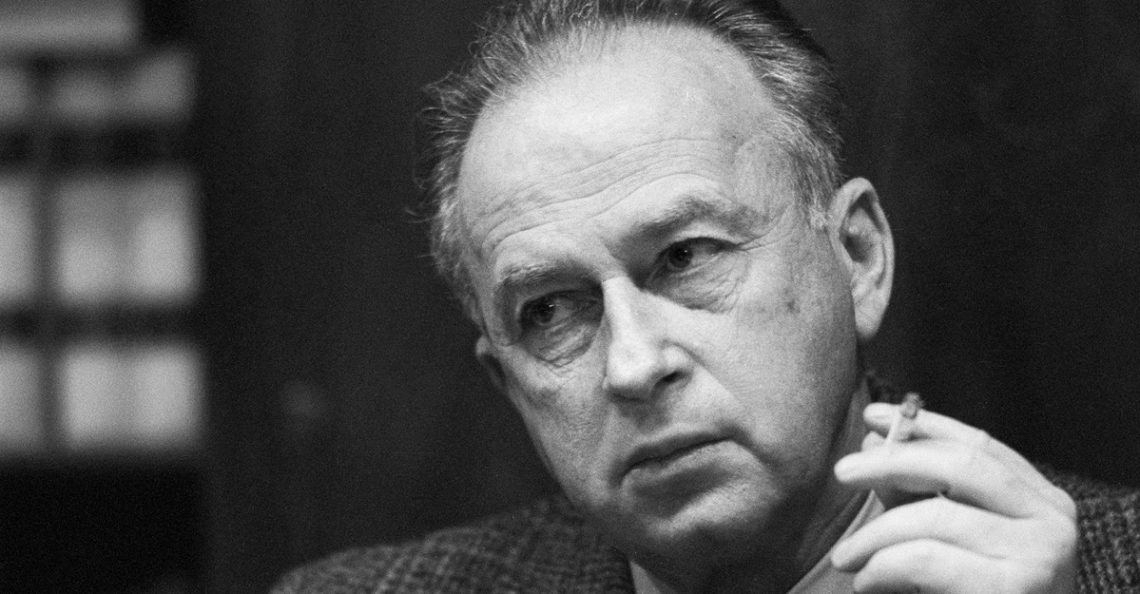It is hard for me to believe that 30 years have passed since Israeli Prime Minister Yitzhak Rabin was assassinated.
On November 4, 1995, an Israeli far-right zealot fatally shot the prime minister at a peace rally in Tel Aviv. As the U.S. Middle East envoy at the time, I worked closely with Rabin, who remains the most intellectually honest leader I’ve known. He knew what his present-day successor fails to see: When Israel ignores the concerns of Palestinians, the country undermines its own security. He was the rare Israeli statesman who understood that Israel can advance its interests and address the Palestinian cause at the same time. Indeed, he was killed because of his efforts to broker peace, a prospect his killer couldn’t tolerate.
Once Rabin had thought through a decision, you couldn’t argue him out of it. But he had the courage to admit his mistakes. I remember when he came to Washington in December 1988 and said that Israel’s military could quickly put down an emerging Palestinian uprising. I disagreed, warning that Palestinians’ frustrations could not simply be suppressed. Rabin later told me I was right. (The uprising became the prolonged period of unrest known as the First Intifada.) He had come to understand that the Israeli-Palestinian conflict had no military solution—only a political one. Three decades later, too many Israeli leaders still reject that core insight.
Although Rabin could be stubborn, he adjusted his thinking when the situation demanded it. He was deeply suspicious of the Palestine Liberation Organization and its head, Yasser Arafat, who had been responsible for much terror and Israeli bloodshed. But Rabin came to see that no one else could represent the Palestinian people. He authorized secret peace talks with the PLO and then negotiated the Oslo Accords, which resulted in mutual recognition between the Israeli government and the PLO, and turned over incremental parts of the West Bank and Gaza to Palestinian self-governance. The Oslo Accords had many flaws, but their critics—including Benjamin Netanyahu, who kept the framework in place as prime minister—have never offered a workable alternative. Instead, they continue to act under the illusion that Palestinians will simply accept permanent Israeli occupation of the West Bank and Gaza.
Rabin’s ultimate goal was peaceful coexistence, yet he was not naive about how difficult it would be to achieve. In February 1995, he told me that negotiating a permanent peace agreement with Arafat might prove impossible. If the two sides couldn’t agree, Rabin said, Israel would build a barrier to partition its land from Palestinian territory in order to meet Israeli security needs.
A few years earlier, Rabin had demonstrated how Israel could pursue its strategic interests in a Middle East that bears similarities to the region today. America’s commanding victory in the Gulf War in 1991 had weakened Saddam Hussein and anti-Israeli forces, giving President George H. W. Bush extraordinary diplomatic leverage. Today, too, Israel’s rejectionist enemies are in disarray: The country has pummeled Hezbollah and Hamas; Assad’s regime in Syria has collapsed; and the 12-day Israeli and American war dealt a significant blow to Iran. As with Bush in 1991, few countries are willing to say no to President Donald Trump.
Rabin sought to take advantage of such circumstances by working with the United States to pursue peace with Syria, Jordan, and the Palestinians. His efforts built on the Madrid Peace Conference, which the U.S. had helped assemble shortly after the war. The conference broke the enduring taboo on direct talks between Arabs and Israelis—and Rabin took advantage. As he explained in a speech after becoming prime minister the following year, Israel had to foster peace with its neighbors in order to focus on the greater threat posed by Iran and its nuclear program.
The parallels between 1991 and 2025 are not perfect. Hamas’s October 7 terrorist attack and Israel’s devastating campaign in Gaza have produced a mutual animosity that won’t soon disappear. But a more promising factor has also emerged: Arab states finally seem ready to assume some responsibility for resolving the Israeli-Palestinian conflict. I hear this in my conversations with high-ranking Arab officials. And I saw it in July, when Arab states endorsed a declaration condemning Hamas for October 7 and calling for the group’s disarmament.
If Rabin were alive, he would spot this strategic opening and try to seize it. He would see in Trump’s 20-point peace plan an opportunity to rebuild a better Gaza and create a coalition with Arab states to oppose Iran and extremist forces in the region. Rabin would understand that Israel has to make some concessions to Palestinians in order to enhance the prospects of a regional coalition. But he would also require Palestinians to do their part by ensuring security and reforming the Palestinian Authority.
Rabin and I met for the last time three days before his assassination. Six weeks earlier, we had finalized the Israeli-Palestinian Interim Agreement, which gave the PA control of the cities in the West Bank. It had generated substantial backlash from Israel’s right wing, but Rabin was undaunted. He believed he could make more progress with Arafat, even though the PLO had begun allowing Hamas to build its presence in Gaza.
Rabin wanted me to raise the issue of Hamas with Arafat, though only in broad terms. But generalities never worked with Arafat, so I told Rabin, “Give me the details. That way I can hold Arafat accountable.” Rabin thought for a moment, then told me he could handle it himself. He was upbeat and energetic. As I was leaving, he said the last words I would ever hear from him: “Dennis, expect anything.”
Those words still haunt me. I expected many things, but not Rabin’s assassination—much less that he would be killed because he sought peace. I did not expect that Israel would still have so far to go on the path he helped clear.
The post Yitzhak Rabin Knew What Netanyahu Doesn’t appeared first on The Atlantic.




